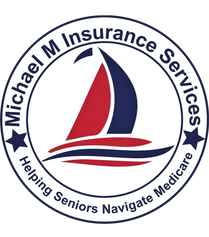Turning 65 is a major milestone. There’s the celebration, the congratulations… and then there’s
Medicare. Suddenly, your mailbox is overflowing, your phone won’t stop ringing, and your neighbor—who once borrowed your ladder and never returned it—is now offering “expert”
Medicare advice.
One of the most common things we hear from people who are newly eligible for Medicare is
this:
“Oh, I don’t need help. My friend knows all about Medicare.”
Here’s the truth: they probably don’t. And that’s not an insult—it’s just reality.
In this blog post, we’ll explore why leaning on your friend’s advice (no matter how
well-intentioned) could steer you wrong, and what you should be doing instead. Think of this as
a gentle guide to avoiding the “friend trap” while still keeping your friendships intact.
Let’s start by giving your friend the benefit of the doubt.
Maybe they’re already on Medicare and they want to help. Maybe they had a good experience with a certain plan. Or maybe they just want to feel useful. That’s fine. That’s human.
But here’s the issue: Medicare is not one-size-fits-all.
Your friend:
- Might not take the same medications as you
- Might not have the same doctors or health conditions
- Might live in a different zip code or county
- Might be eligible for programs or benefits that you aren’t—or vice versa
And yet, we constantly hear people say things like:
- “My buddy said Medicare Advantage is free.”
- “My neighbor told me I don’t need Part D because I’m healthy.”
- “My sister said she got a Supplement and never has to pay anything, ever.”
Those statements may be partially true for them , but applying them to your situation can lead to real financial consequences, network issues, and coverage gaps.
The Problem with “Friendly” Medicare Advice
Why This Happens: Medicare Is Confusing
Let’s face it—Medicare can be complicated. There are:
- Multiple parts (A, B, C, D)
- Two very different paths (Original Medicare + Supplement vs Medicare Advantage)
- Enrollment rules and timelines
- Penalties if you don’t enroll correctly
- Different rules depending on whether you’re still working, have retiree coverage,or qualify for special programs
It’s no wonder people try to simplify it by following what someone else did. It feels easier. Safer. Familiar.
But Medicare is like taxes—just because your brother-in-law does his own with a calculator and
a shoebox of receipts doesn’t mean you should.
The Cost of Bad Advice
Here are just a few real-world examples of what can happen when people rely on informal
advice:
1. Missing Enrollment Deadlines
Your friend might say you can sign up “whenever,” but if you wait too long, you could face late penalties for Part B and Part D that last for life .
2. Picking a Plan That Doesn’t Cover Your Medications
A friend may rave about how great their $0-premium Medicare Advantage plan is—until you
realize it doesn’t cover the brand-name prescription you take, or it requires step therapy or
prior authorizations for treatments you need regularly.
3. Getting Stuck Without Your Doctors
Not all doctors accept all Medicare Advantage plans. If you follow a friend’s recommendation
and your provider isn’t in-network, you could face higher costs—or have to find a new doctor entirely.
4. Overpaying for Coverage You Don’t Use
On the flip side, you may be on Original Medicare with a pricey Supplement plan because your
friend told you it’s the “best,” but you might be barely using your benefits and overpaying each
month for peace of mind you may not need at this stage of life.
Why Friends Mean Well—but Fall Short
Your friend isn’t trying to lead you astray. They genuinely think they’re helping.
But they:
- Probably haven’t studied Medicare rules
- Don’t know current 2025 plan costs or drug formularies
- Aren’t licensed or trained to compare plans
- May not even remember why they chose the plan they have
In fact, if you press a little harder, you might discover your “expert” friend just signed up for
whatever plan was suggested to them during a 20-minute call three years ago.
How to Talk to Your Friend Without Starting a War
This can be a sensitive topic. You don’t want to offend someone by rejecting their help. Here are
a few ways to keep the peace and protect your Medicare decision:
- “Thanks for the advice! I’m looking into all my options to make sure I get what’s best for me.”
- “That’s great it worked for you—my health situation’s a little different, so I’m reviewing some other plans, too.”
- “I’ve been reading up on this and talking to someone who specializes in Medicare just to make sure I don’t miss anything important.”
That last one is key: talk to someone who’s trained to help you—not just someone who once
had to make the decision themselves.
What You Should Do Instead
Here’s how to make smart Medicare decisions based on facts, not friendly opinions:
- Visit Medicare.gov to compare plans
- Review your Annual Notice of Change (ANOC) every fall
- Look up the drug formulary to see if your prescriptions are covered
An independent Medicare advisor can:
- Compare plans from multiple carriers
- Review your prescriptions and doctors
- Help you avoid penalties and coverage gaps
- Answer your questions without pressure or sales tactics
Most importantly: they tailor the advice to you.
Final Thought: Friends Are Great—But Not for Medicare Advice
It’s wonderful to have friends who care. But when it comes to Medicare, what works for them
may not work for you. Worse, taking the wrong advice could cost you time, money, and peace of mind.
So the next time someone says, “Oh don’t worry, I know all about Medicare,” smile, thank them kindly, and go do your homework anyway.
Or better yet, speak to someone who actually does know what they’re talking about.
- Start reviewing your Medicare options 3–6 months before your 65th birthday
- Gather a list of your current doctors and prescriptions
- Learn the difference between Original Medicare + Supplement vs Medicare Advantage
- Don’t rely solely on well-meaning friends or coworkers—seek professional guidance if you’re unsure

